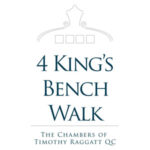Antonia Barker analyses the approach to joint accounts and the significance of a declaration as to the beneficial ownership of such an account ‘Where there is a joint account, there is a single contractual relationship between the holders and the bank’. In Whitlock v Moree [2017] the Privy Council, on appeal from the Court of …
Continue reading "Joint bank accounts: Shared intentions"
This post is only available to members.
Wills & Trusts Law Reports | Spring 2018 #171The claimant claimed a beneficial interest in a residential property registered in the joint names of the first and second defendants, his sister and brother-in-law respectively, on the basis that in 1959 he paid £600 towards the purchase price. By the time the matter came to trial in October 2015 both first and second defendants had lost capacity.
Giving judgment at first instance, HHJ Faber found both claimant and defendant witnesses to be unreliable. She concluded that on the evidence available she could not arrive at any finding as to who had made the £600 downpayment in 1959,...
Wills & Trusts Law Reports | Spring 2018 #171W and M were married in 1969 and divorced in 1974. During their marriage, they bought a leasehold property with the proceeds of their former matrimonial home and a mortgage loan for the balance. The benefit of the long lease of the property was conveyed to them as joint tenants. M moved out of the property in 1973 and began divorce proceedings. No steps were taken in the divorce to deal with the ownership of the house, which remained vested in them as joint tenants. After M left the property, W had treated it as his own, insuring, maintaining and improving it and, soon after the divorce,...
Richard Adams clarifies the current position on beneficial ownership in the event of relationship breakdown ‘What the case highlights of course is the importance of those in relationships of this nature to document clearly their intentions as to respective ownership, and indeed to do so prior to any investment being made.’ The Privy Council recently …
Continue reading "Jointly Held Assets: Owning it"
This post is only available to members.
Daisy Brown explores how the courts will apply equitable accounting principles to co-owned trust property ‘The basic principle of equitable accounting between co-owners is that the financial benefits and burdens of the trust property are adjusted between them with reference to the proceeds of sale.’ In the judgment handed down on 7 April this year …
Continue reading "Equitable Accounting: Still relevant"
This post is only available to members.
Chris Bryden and Jyoti Wood analyse the Privy Council decision in Marr v Collie and the significance of a commercial aspect to a personal relationship ‘The Privy Council has made it abundantly clear that it is intention, not presumption, that matters.’ In Marr v Collie [2017] the Privy Council was concerned with an appeal in …
Continue reading "Cohabitants: Seeking clarity"
This post is only available to members.
Wills & Trusts Law Reports | Summer 2017 #168The respondents (Rs) are a married couple but at all times after 2001 were estranged and living apart. The wife (R2) purchased a property (the property) in 2003 using monies from another property owned by her and the remainder by interest-only mortgage. The title to the property was in R2’s sole name and she moved in with her children. The husband (R1) never lived in the property.
Shortly after purchase, Rs signed a declaration of trust declaring inter alia that R2 held the property on trust for herself and R1 in equal shares, that she would register R1’s interest and ...
Amanda Tipples QC examines the interaction of common intention constructive trusts and proprietary estoppel in light of the decision in Matchmove v Dowding ‘For a party to succeed on a claim to enforce an oral bargain in respect of land, coupled with reliance and detriment, it needs to base its case on a common intention …
Continue reading "CICTs And Section 2: Some thoughts from the Bar"
This post is only available to members.
Mark Pawlowski examines the presumption of a resulting trust where assets are owned by a company ‘Where the funds for purchasing the assets come from the company controller, the likely approach (absent any contrary intention) is to apply resulting-trust theory so as to treat them as beneficial owner.’ In what circumstances is it open to …
Continue reading "Trusts: A fair result?"
This post is only available to members.
Mark Pawlowski summarises how a non-owning cohabitant can obtain capital provision under the Children Act 1989 ‘The practical effect of a settlement/transfer order made under Sch 1 is that, during the period of the children’s education, the house is held on trust for the non-owning party to the exclusion of the other party for the …
Continue reading "Cohabitants: Home truths"
This post is only available to members.







